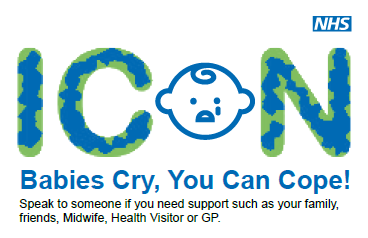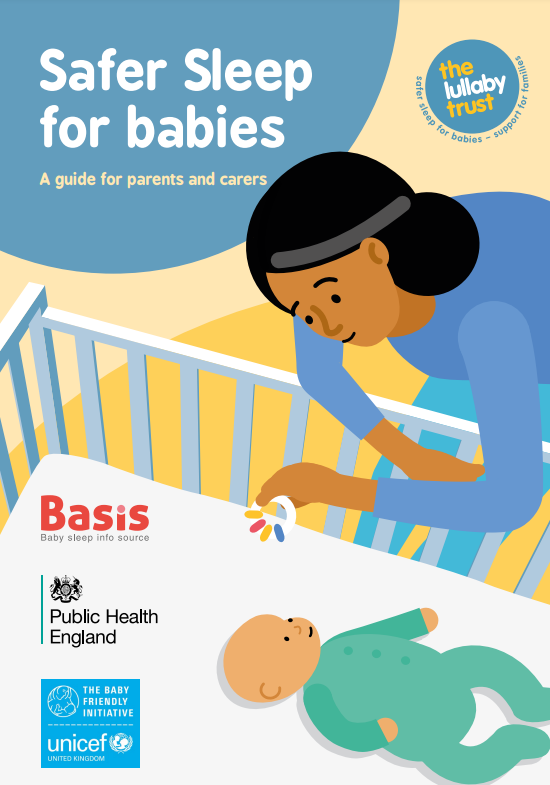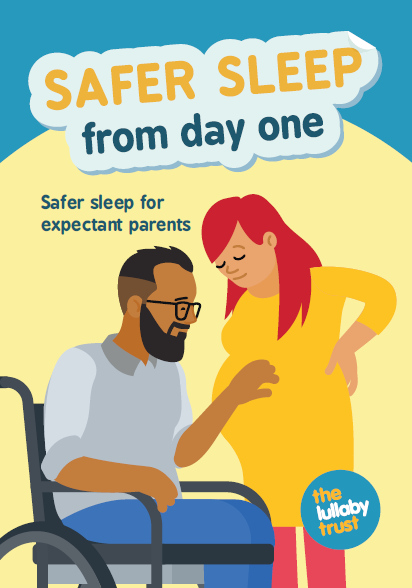Caring for your baby
Caring for a new baby can bring many joys and challenges. Below are some links to local and National Guidance that you may find helpful.
Safe Sleep
Some babies sleep much more than others. Some sleep for long periods, others in short bursts. Some soon sleep through the night, while some don’t for a long time.
Your baby will have their own pattern of waking and sleeping, and it’s unlikely to be the same as other babies you know. Follow the national guidance below to ensure your baby is sleeping safely. Consider times when you are out of routine (e.g. travelling or staying away from home) and the ensure measures are taken to ensure safe sleeping arrangements are made.
Helping your baby to sleep – NHS (www.nhs.uk)
Safe sleep advice for babies – Start for Life – NHS (www.nhs.uk)
The Lullaby Trust – Safer sleep for babies, Support for families: The Lullaby Trust raises awareness of sudden infant death syndrome (SIDS), provides expert advice on safer sleep for babies and offers emotional support for bereaved families
Basis: Baby sleep info source: resources for parents and professionals including basic information sheets, links to the Infant sleep info App and ‘where might my baby sleep’ discussion tool.
For information on caring for your baby see the following links:
- ICON – babies cry, you can cope.
- Safer Sleep
Babies Cry You Can Cope

ICON – Babies Cry, You Can Cope programme supports parents and carers manage normal infant crying and to prevent abusive head trauma injuries to babies caused by shaking, also referred to as ‘shaken baby syndrome’.
The ICON programme delivers four simple messages before the birth and in the first few months of a baby’s life:
I – Infant crying is normal;
C –Comforting methods can help;
O – It’s OK to walk away;
N – Never, ever shake a baby.
Crying infants: Guidance and resources
Support For Crying And Sleepless Babies | Cry-sis
My baby is crying all the time :: Healthier Together (what0-18.nhs.uk)
Parental Mental Health:
A perinatal mental health problem is one that parents may experience any time from becoming pregnant up to a year after giving birth.
Having a baby is a big life event. It’s natural to experience a range of emotions. But if these feelings start to have an affect on daily life, this might be a perinatal mental health problem.
This could be a new mental health problem. Or an episode of a problem a parent may have experienced in the past.
It can be difficult for a parent to know whether they’re experiencing perinatal mental health problems. Especially if they’ve become a parent for the first time.
Some of the symptoms that they experience may feel normal to you at first. They may feel like its a natural part of having a baby. This can make it more challenging for them to know when to seek help.
Your mental health – Start for Life – NHS (www.nhs.uk)
Information for Dad’s
#AskMe Campaign

#AskMe….. Have the Conversation is a campaign aimed at professionals across North Yorkshire to encourage them to have conversations with new and expectant parents about how they are feeling about a number of aspects of having and caring for a baby.
The campaign holds a collation of key resources and information to raise awareness for practitioners of the need to ask parents how they are feeling around aspects of caring for their baby in those crucial first few months of life.
Having a baby is a life changing event that brings many joys and challenges. Some parents may find it difficult to share with professionals that they are struggling, therefore it is crucial for all frontline practitioners who come into contact with new partners to have the confidence to explore with them how they are feeling and coping with the changes and challenges parenthood can bring.
#AskMe is about professionals asking the questions of new and expectant parents about how they are feeling and managing with the challenges in a supportive and non-judgmental way.
For more information about the campaign please visit NYSCP (safeguardingchildren.co.uk)







 View all our news
View all our news